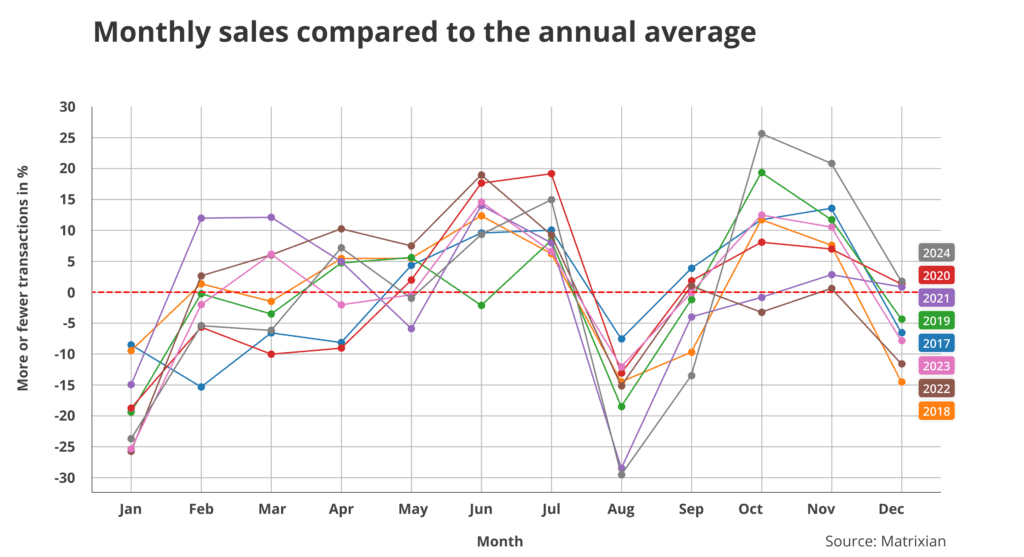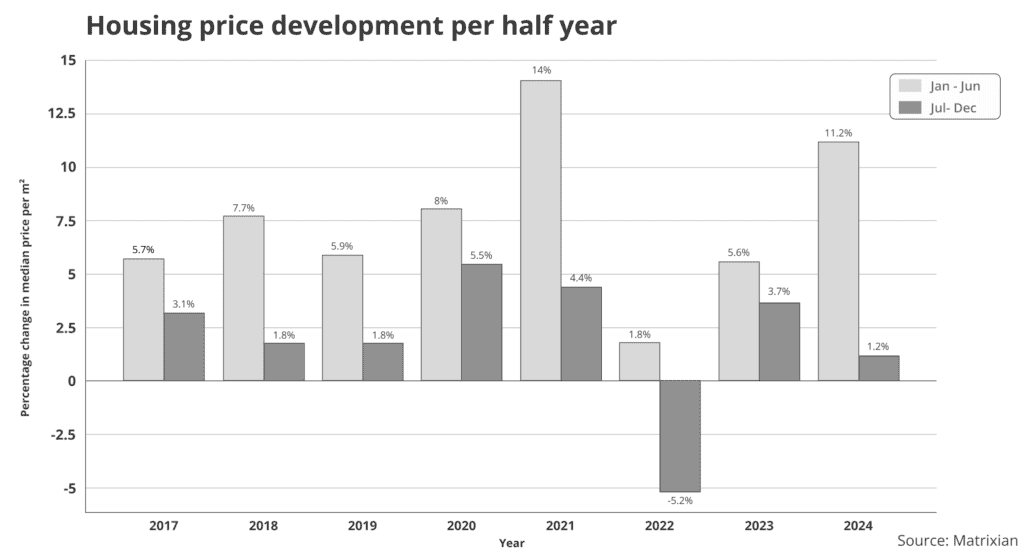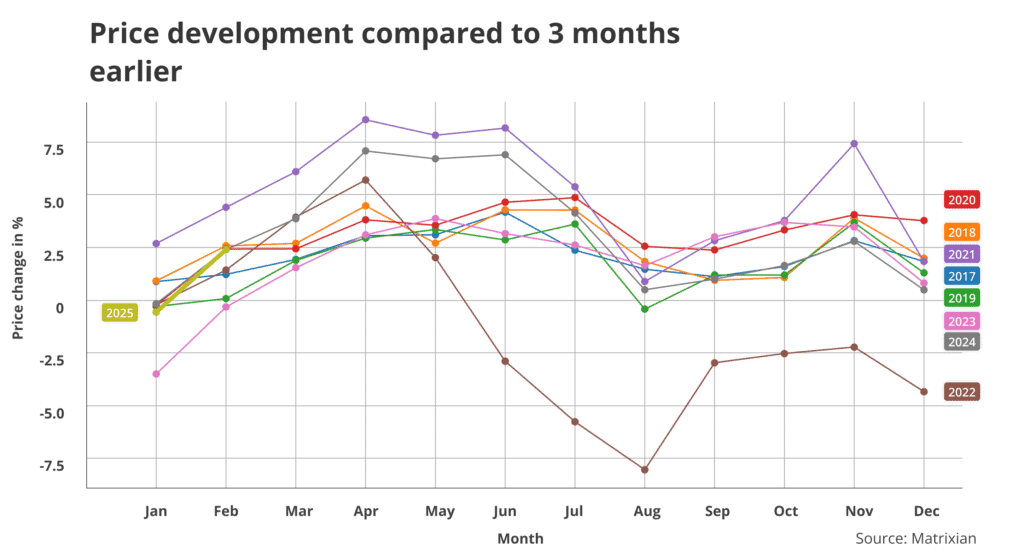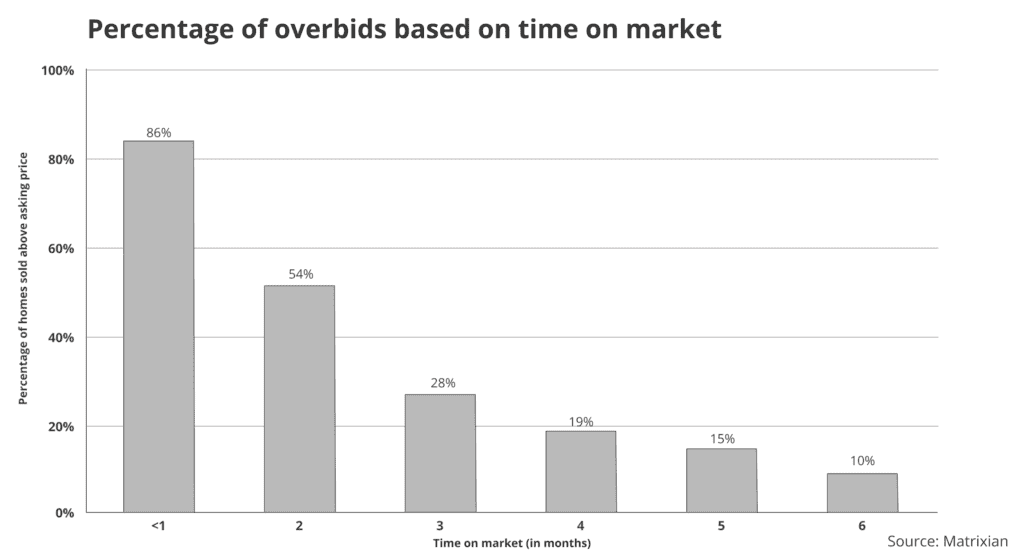Homeowners considering selling their property now may want to hold off just a little longer. Research by data technology company Matrixian shows that the timing of a home sale can significantly impact the final selling price. Properties sold in June and July generally yield higher returns. Sellers benefit from stacked price increases and more active buyer demand.
Seasonal pattern in housing transactions
Since 2017, the Dutch housing market has shown a consistent seasonal pattern, with two annual peaks and two clear dips in the number of transactions. Sales activity reliably peaks in June/July, and again in October/November.
By contrast, structural low points typically occur in August and around the turn of the year. In January 2022, the number of transactions was 25.7% below the yearly average. In August 2024, the decline even reached 30%. December also tends to show a drop, although less severe than in January.

Price growth peaks before summer
Not only do transaction volumes fluctuate with the seasons — house prices do too. Based on cadastral purchase prices at the time of agreement, price development in the first half of the year consistently outperforms the second half. In 2024, for example, prices rose by 11.2% in the first six months, compared to just 1.2% in the second half.

Short-term trends show that home prices increase by an average of 2.5% every three months, but between April and July, that percentage is often significantly higher. June and July are therefore attractive months to close a deal — and because the average time to sell a home is around 30 days, May or early June is the ideal time to list your property. That way, the actual sale occurs during the most favourable pricing window.
“The timing of your home sale can make a major difference,” says Rody Bottelier, housing data expert at Matrixian. “Homeowners who list their property now could be missing out on tens of thousands of euros. Waiting until late May or early June usually results in a better price and stronger buyer interest at the time of sale. Of course, there are no guarantees — external factors like the 2022 energy crisis, rising interest rates, or an economic downturn can always affect the market unexpectedly.”

The market rewards patience – up to a point
Anyone who studies seasonal trends in the housing market can see that waiting to sell can certainly pay off. Homes sold in June or July tend to generate higher returns and sell more quickly. But waiting too long can backfire. Listing a home months in advance in the hope of a better offer rarely proves effective. In fact, homes that sell quickly are most likely to sell above asking price.

For homes sold within one month, 86% are sold above asking price. After two months, this percentage drops to 54%, and after three months to 28%. If a home remains on the market for four months or more, overbidding becomes the exception rather than the rule.


